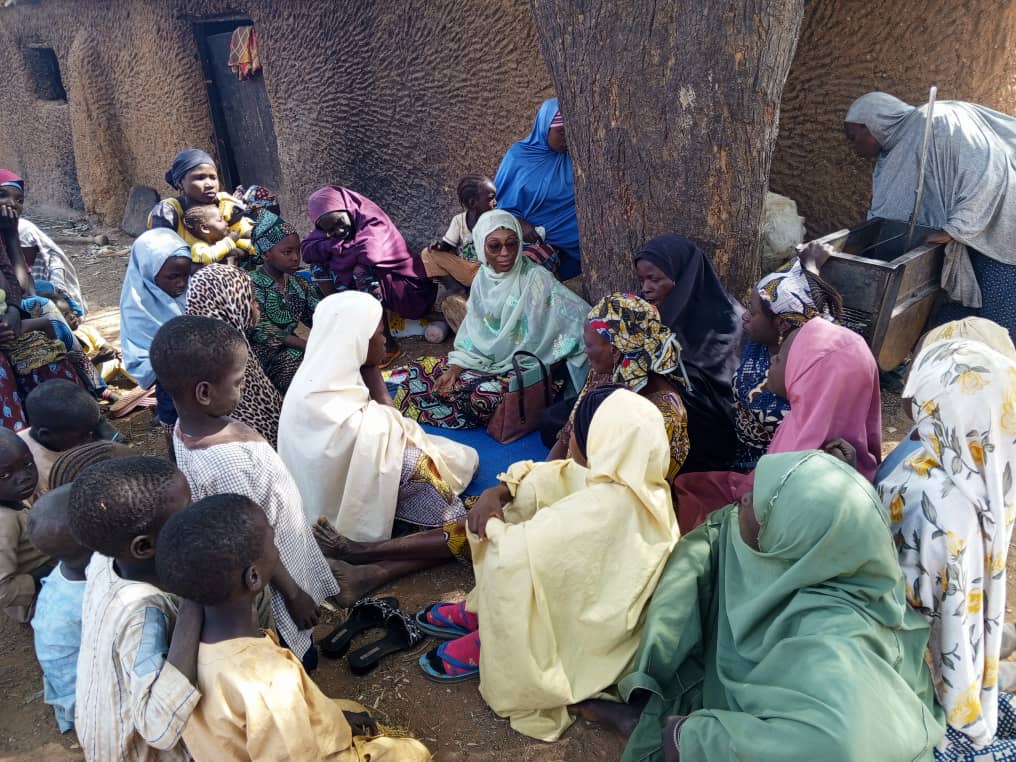Hannatu Suleiman Abba
In Kano State, rural communities continue to suffer from poverty and lack of basic services, Marken Mahuta, a remote village in Ɗambatta Local Government Area, has neither healthcare nor education.
For decades, residents have lived without a functional health centre or a primary school that can graduate students. The result is illiteracy, maternal deaths, and lost futures.
How gov Yusuf reconnected Kano community that spent 3 years in blackout
No School, No Future
Education in Marken Mahuta is rare. No girl has ever completed primary school, and boys struggle due to poor facilities, unqualified teachers, and cultural barriers. Many children drop out before adolescence.
“We lack the manpower to champion a positive narrative in the community. Without education and healthcare, our future remains uncertain,” said Malam Bala, a resident.
“I always dreamed of seeing my daughter go to school and become a teacher, but that dream is fading away. We don’t have a single female teacher in the entire village,” said Hajiya Sa’adatu, a mother of five.
Without advocacy for education, literacy remains low. Parents prioritize survival over schooling.
“We send our children to school, but they return home without learning anything. We need trained teachers, not just people looking for a salary,” said Malam Garba.
HPV Vaccine Community Outreach Records Encouraging Turnout in Kano
The Healthcare Crisis
Maternal mortality in Kano State is high, with 377.8 deaths per 100,000 live births. Marken Mahuta contributes to these numbers due to lack of healthcare.
Hajiya Binta, a 70-year-old resident, described the situation: “One of the most vulnerable groups in our village regarding healthcare services are pregnant women. Before they reach Ɗambatta General Hospital, many lose their babies or even their own lives. Some end up in unconscious conditions due to complications.”
Women in labor must travel to distant hospitals, often at night, with no reliable transport. During the rainy season, the village is cut off entirely.
Yalwa, a grieving mother, shared her loss: “There is no medical attention for Marken Mahuta residents. We completely rely on traditional medicine. When I was in labor with severe pain, I became unconscious and needed urgent medical help, but there was no hospital. My husband called a local midwife for emergency aid, but in the end, I lost my baby.”
Other medical services are nonexistent. Residents rely on self-medication, and diseases like malaria and typhoid go untreated. The only government intervention is polio vaccination campaigns.
“Every rainy season, malaria takes over our village. We lose children to preventable diseases simply because we have nowhere to go for treatment,” said Malam Sani, a father of six.
A Cycle of Neglect
Marken Mahuta once had a primary healthcare center, but it burned down years ago and was never rebuilt. Politicians make promises, but nothing changes.
“We rely on private pharmacies and self-medication for survival. A few years ago, our primary healthcare center was destroyed by fire, and since then, neither the government nor any philanthropist has intervened to rebuild it,” said Malam Bala.
“We don’t even have an access road. During the rainy season, we are completely cut off from the world. Sick people die because they cannot reach a hospital,” added Malam Yusuf, a community elder.
Without education, the village cannot demand its rights. Without healthcare, it loses its people. Residents are calling for intervention to provide healthcare, improve roads, and support girls’ education.
“Our hope is that one day, someone will remember us. We are not asking for luxury, just the basic things every human being deserves: education, healthcare, and a road to connect us to the outside world,” said Malama Amina, a widow raising four children.





